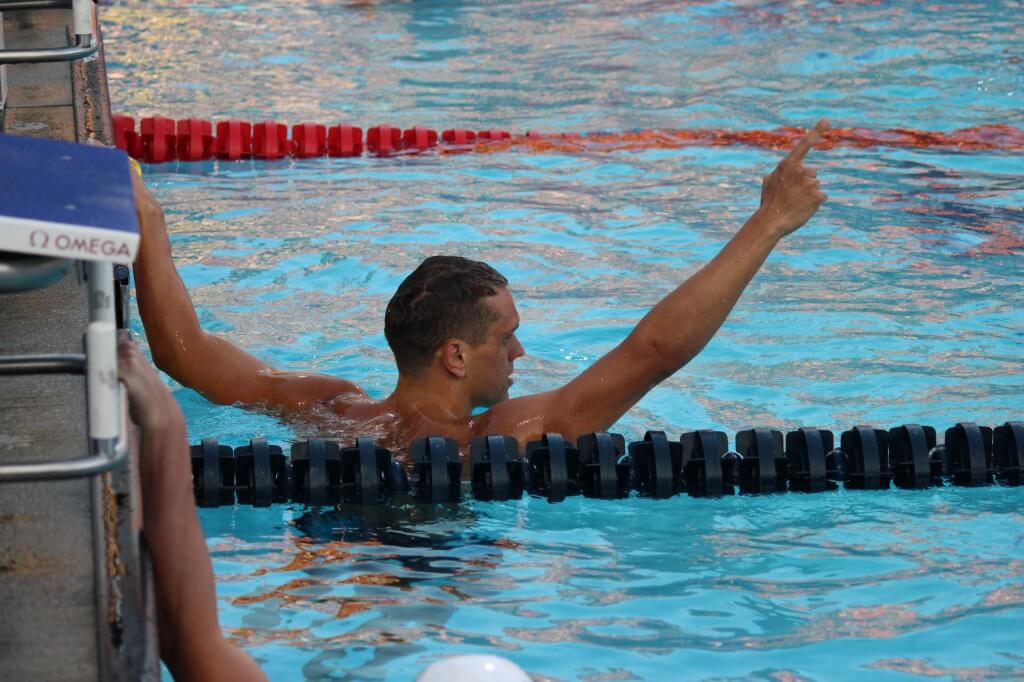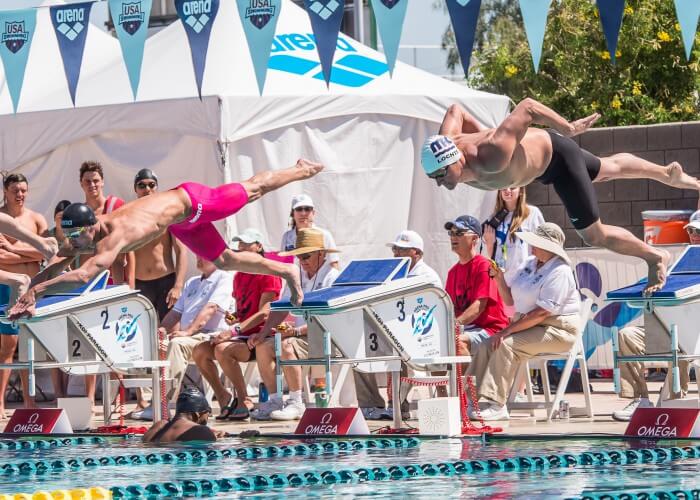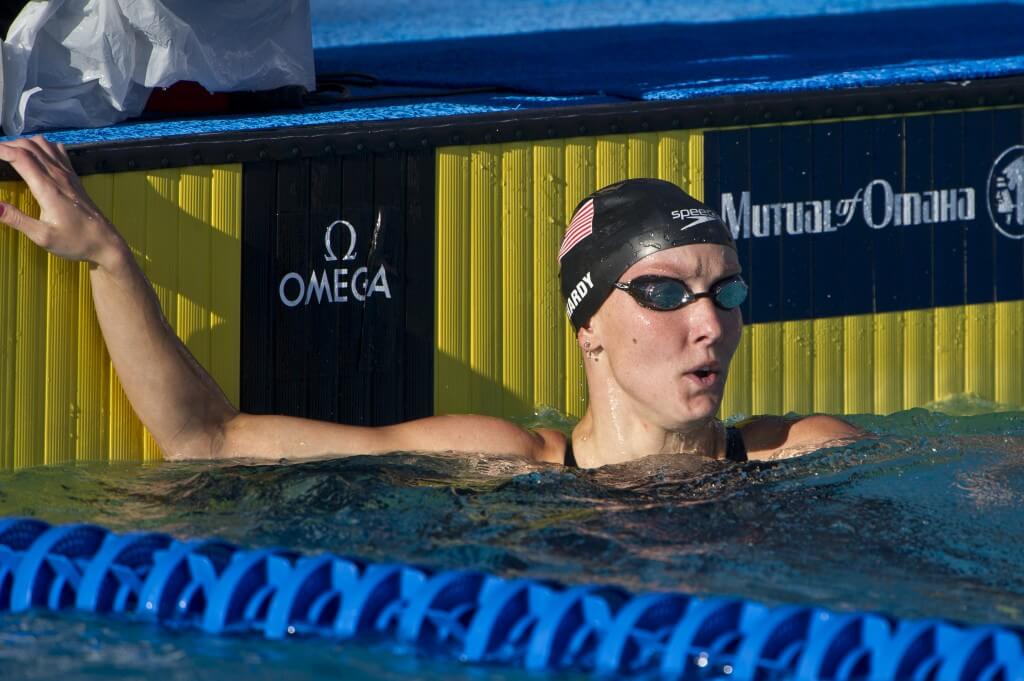Patience is A Virtue, A Necessity in Swimming

By Andy Ross, Swimming World College Intern
We live in a world dominated by instant gratification. People like to see results as soon as they start something new, and most times, the results will not come instantly. And in the sport of swimming, that is almost never the case.
As a collegiate swimmer and the son of a coach, I have been around the pool for a long time. My parents are two of the smartest people I know and one thing that they always tell me is “you need to be patient, and it will eventually come around.”
When I was a kid, I always hated making changes to my strokes, turns or starts because I could never feel a difference in what I was doing. I was often a pain in the butt with my coaches because I never listened. But as I grew older and started to learn about my body more and more, I realized that slight changes to your stroke will not happen over night.
I did the same start for almost my whole career until I got to college and realized I was last after my initial pullout. I decided to take a day at practice last January and work on my start. I did about 30 repetitions and still couldn’t change years and years of habits. I was not able to fully transform my start until about May when everything came together. I knew I couldn’t fix my bad start in one day, but I kept working at it and it finally came together in the off-season.
Patience After A Break
Everyone is guilty of feeling frustrated when not swimming well, especially as your body is trying to recover from an illness or injury. One thing that I have learned from years and years in the pool is that even though you don’t feel sick or injured, your ailment still affected your body and it needs time to recover. If you have a knee injury and it takes a long time to recover, then you cannot expect to get back to where you were at the beginning of the season. It could take another whole season just to get back in to the shape you were in before the injury. Your body needs recovery after setbacks, and recovery takes time. Be patient and work through your recovery.
One of my biggest pet peeves about the sport of swimming is how long it takes to get back in shape. I could take two weeks off of swimming and it would take me probably close to two more weeks to get back into the shape I was in. It seems like after the first day back, I always think to myself that there is no way I’ll ever feel good in the water again. I will never feel like I’m on top of the water ever again. And then all of a sudden, two days later I feel fine. It doesn’t make sense but that is just how the sport works. It takes time.
Patience With Your Training
Another thing that I have noticed is that hard work takes a while to settle into the body. Through my time in college I have noticed a lot of freshmen get frustrated when they are not improving on times they did in high school. When I was a freshman, I remember thinking I was going to improve a lot during my first year because I was doing real weights workouts and I would be training more to my better distance events rather than the sprint based practices I did in high school.
But I didn’t improve much in-season. In fact, I fell ill during my first conference meet so I wasn’t even able to see what I could have done healthy. The next summer I went home and figured I would keep on improving. Nope. I was swimming the same, or in most cases, slower times than I had the summer before.
I didn’t get it. I was lifting more. I was training better. Why wasn’t I getting faster? I ended up swimming virtually the same times at my taper meet. After that summer, I was ready for a breakout year.
During my sophomore year, I still kept swimming the same times throughout the season. I ended up getting some sort of muscle strain in my legs and was unable to kick breaststroke without pain. I was able to heal before our mid-season rest meet and I was thinking “this is my breakout meet.” It wasn’t. I was devastated. I had to have about an hour-long conversation with my mom after the meet about my swimming. She kept assuring me that I wasn’t ready for a breakout yet, that it would come eventually.
I couldn’t listen. I was too upset. I was so mad that I still hadn’t gone as fast as I thought I could after over a year of college training. I felt like I had worked so hard in the last year that I was finally ready for a breakout. But it wasn’t my time. This actually took a lot of my confidence away throughout my sophomore season. I stopped having fun in swimming because I was injured and/or I wasn’t improving. I thought, “what’s the point?” I had to talk to my club coach and my dad and I was eventually able to get it together and train really well through the end of the season.
I ended up going my best times at my conference meet but still did not place how I wanted to. I walked away from yet another season disappointed.
And then something happened. The next summer I had started going times in practice I had never done before. I was swimming faster than ever and swimming effortlessly. I didn’t do anything differently. I didn’t change my technique. I had patience and it paid off. It took me two years to finally have the breakout season I had been waiting for, and that was all because I never gave up. I stayed hungry for success and eventually I found it.
My point is this– it may take a few seasons for your hard work to settle in. It may be over a year before you see results from your tireless efforts in practice. But don’t give up. Your hard work will pay off. Your body needs time to adjust to what you’re doing to it. Some bodies need more adjusting than others. But you need to be patient with your hard work.
Yes, I know it may be frustrating, but trust me, two years of hard training leading to a two second drop makes it all worth it.






Great article. Thank you!
Ya sé de dónde saqué mi paciencia mil Nat De Narvaez